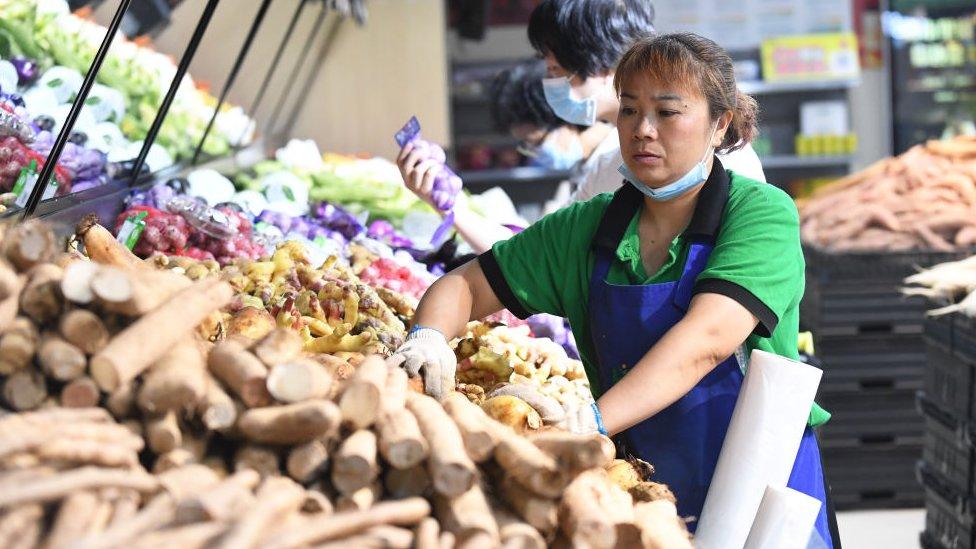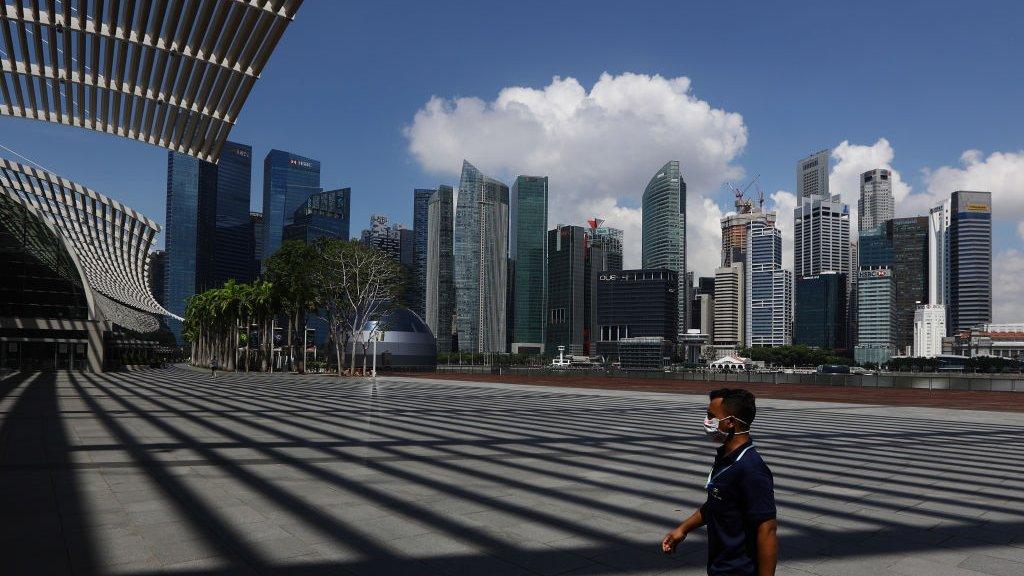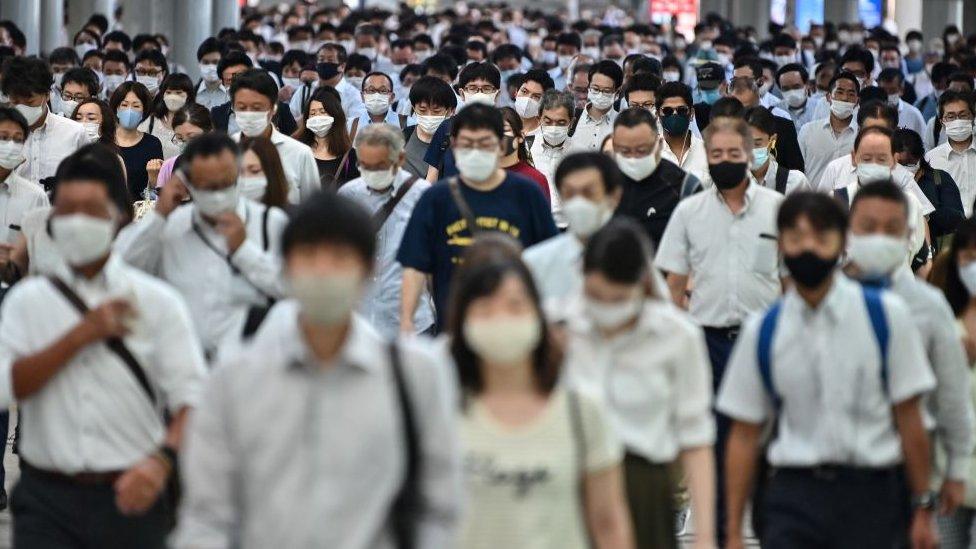Asia sees first regional recession in 60 years
- Published

The Asian Development Bank (ADB) says the Covid-19 pandemic has pulled the region's developing economies into recession.
It is the first time in six decades that "developing Asia" - a designation that includes 45 countries - has seen a regional slump.
The ADB says developing Asia's economy will shrink by 0.7% in 2020.
But the region is expected to rebound strongly in 2021, growing by 6.8% next year.
The bank's Asian Development Outlook Update shows about three-quarters of the region's economies are forecast to slump this year.
It revises down its earlier projection of a paltry 0.1% growth in the region's gross domestic product (GDP) for 2020.
"Most economies in the Asia and Pacific region can expect difficult growth path for the rest of 2020," ADB chief economist Yasuyuki Sawada said in a statement.
The ADB's assessment brings the lender into line with the International Monetary Fund, which made a similar prediction earlier this year.
South Asia is likely to be the worst affected, while China is bucking the trend.
India's economy is expected to contract 9% this year, while China's growth is forecast at 1.8 percent.
Southeast Asia is likely to see a drop of 3.8%.
Tourism-dependent island economies, in particular, have seen wrenching economic contractions.
Fiji's economy is expected to shrink by 19.5%, while the Maldives is likely to see a 20.5% contraction.
The good news is that the region is expected to recover next year, with growth of 6.8%.
China's economy is expected to rebound by 7.7% in 2021, while India will also bounce back with 8% growth next year, the ADB says.
But the bank warns that a recovery could be derailed by a prolonged pandemic and tougher containment measures.
"The economic threat posed by the Covid-19 pandemic remains potent, as extended first waves or recurring outbreaks could prompt further containment measures," Mr Sawada said.
- Published14 July 2020

- Published17 August 2020
